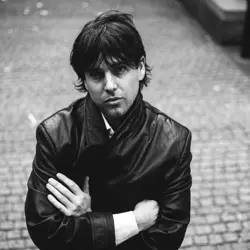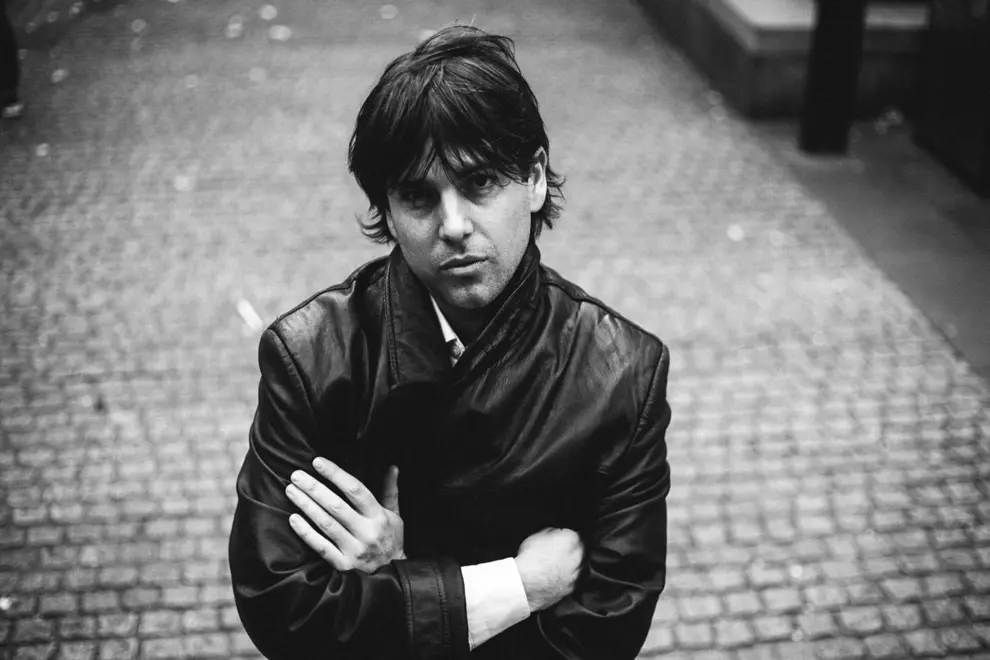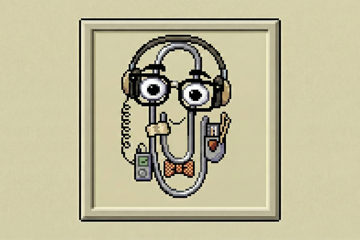 Alexander Gow
Alexander GowThe career of a musician often takes numerous twists and turns. One day, you’re being nominated for an ARIA, listening to yourself on the radio and touring to sold-out crowds. The next, you’re looking for a day job. But when the commerce and muse seemingly no longer align, what happens to the art?
Such is the question for Alexander Gow, the artistic driving force behind Oh Mercy. The band formed in 2006 and were triple j darlings for a decade, with their albums Privileged Woes (2009) and Deep Heat (2012) both nominated for the J Award for Album of the Year. There were five ARIA Nominations, including a win for Best Adult Contemporary Album in 2015 for the band’s penultimate album, When We Talk About Love. Three albums reached the ARIA top 30.
But then the realities of life happened. Triple j support turned into Double J support and the realities of declining opportunities for Australian musicians started to bite, forcing Gow to turn to a day job to make ends meet.
Fast forward a few years and a pandemic later, and Alexander Gow, now solo, is on a new journey, one that continued his muse as a songwriter but that incorporated a new role as a podcast producer at the Australian Financial Review. Now, instead of getting up to collect an ARIA, he could be gracing the stage for his work on November 23 at the Walkley Awards (ironically just one week after this year’s ARIAs) as part of the AFR team reporting on the PwC tax leaks scandal.
Don't miss a beat with our FREE daily newsletter
Gow’s new album, Dizzy Spell, dropped just last week, with his new career and his old somewhat colliding in time if not headspace. Gow explained that while there was commonality between the two, there’s a reality to holding down a day job that is often a necessity in the modern music industry- and that it’s not always a bad thing.
“Journalism pays. Music doesn’t,” he said philosophically. “Sometimes the inverse is true. Right now, AFR pays the rent and the mixing invoices. I was initially concerned my songwriting would be diminished by the full-time work commitments. Fortunately, it hasn’t.”
“I’ve just managed to be more efficient in my writing process. I write words while walking, jogging, and swimming. I put them to music when I find the time. For me, if the words are good enough, the music barely matters.”
The focus on lyricism is an obvious play for a musician finding the commonality with his new career, and while he believes that no compromise has been required artistically, Gow stresses that being an artist does involve compromising to get things done.
“I’ve had to work on the art of compromise,” he said. “Without it, nothing gets done. Personally, I believe one of the defining qualities of a decent artist is how they manage compromise. Compromise is itself part of the creative process.”
The new album was produced with Rohan Sforcina, creating an almost nostalgic soundscape by recording on a 4-track in Gow’s Princes Hill rental terrace. The self-imposed limitations of the simplistic recording setup has created an intimate focus on the essence of the songs, stripping out any elements that don’t need to be there to get to the heart of the matter.
Consciously or subconsciously, it’s the journalistic ethic put to a musical creative process.
"I had written 50 songs during 2022 and a bunch more into 2023,” explains Gow. “And when I paused, I recognised an intimacy to this collection of work. I hoped to represent that intimacy with an inviting recording, littered with simple but purposeful performances. The opportunity to make this record on a tape machine with limited tracks was too good to refuse. For the tool demanded intimacy."
What has emerged is a beautiful twelve-track collection, worthy of the first tome with Gow’s name on the front. Sure, you could put it on in the background, but this is a record that demands your attention and unwraps its layers as you delve into the lyrics. It’s something the modern music industry finds difficult. Repeated listens. Immersive experiences.
The meandering and beguiling life of the professional musician continues. Will this album catapult Gow back to the top of the charts? Will it carry him on a new journey? Or will journalism take him on a different path? What an accomplished album like Dizzy Spell proves is that it’s not a binary, and the commercial outcome doesn’t matter- just the art. Gow’s journalism will feed his musical muse and vice versa. The complicated journey of the building of character and life experiences will only enhance his creative output into the future.
Dizzy Spell is just the latest chapter offered up for you to consume.
And perhaps in the next few weeks, Gow will have a Walkley to sit on the mantlepiece next to the ARIA while the plot of the next chapter is written.
















